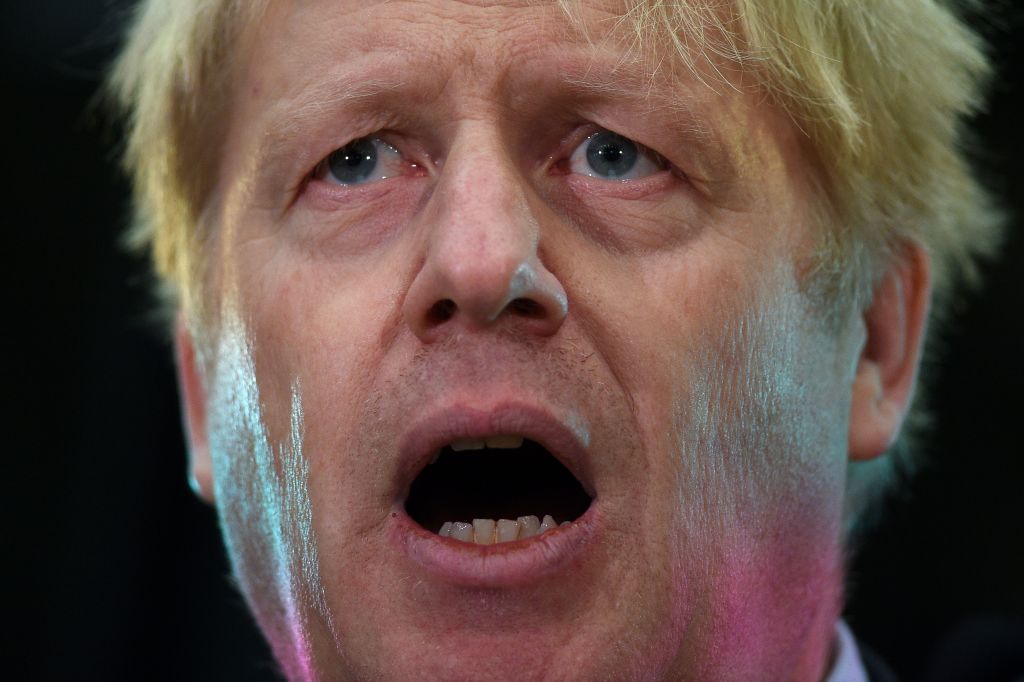You might not have realised from his lack of appearances but Boris Johnson is standing to be Tory leader. There are MPs on the left of the party, and so he’s told them he’s a One Nationer. There are MPs on the right of the party, and so he’s told them he’s a tax-cutter. And what a tax-cutter he is. Johnson says in this morning’s Daily Telegraph that he wants to hike the higher rate income tax threshold from £50,000 to £80,000. This, the paper estimates, will cost £9.6bn annually and will be paid for using the £26.6bn fund for No Deal Brexit preparations and by raising National Insurance contributions.
So far, so Tory, but what about Scotland? Income tax is devolved to the Scottish Parliament and the SNP government has already diverged from the regime in place throughout the rest of the country. Where rates in England, Wales and Northern Ireland stand at 20p (on earnings between £12,501 and £50,000), 40p (£50,001-£150,000) and 45p (£150,001 and over). In Scotland there are five bands: 19p (£12,501-£14,549), 20p (£14,550-£24,944), 21p (£24,945-£43,430), 41p (£43,431-£150,000) and 46p (£150,001 and over). This set-up means Scotland is already the highest-taxed region of the UK, with the higher rate kicking in at £6,570 lower than everywhere else and taking a larger slice of earnings.
The effect of Johnson’s tax cut would be to explode the gap between Scottish and English taxpayers into a chasm. What’s more, National Insurance is not devolved and Johnson has said nothing to indicate he is prepared to change that. Under his plan, then, Scots would have to fork over more in NICs so that people in Surrey could catch a break. To buy the votes of Tory MPs, Johnson has devised a tax cut for higher earners in England that would function as a middle-class Poll Tax in Scotland, all the while detonating the Tories’ decade-long efforts on the national debt. The oiks got austerity, the comfortable get a wad — and the Jocks get hee-haw. Johnson says his proposals would allow us to ‘go for much greater economic growth’ but they sound more like the economics of Alan B’Stard.
Unsurprisingly, the SNP is already all over this. One of its MSPs was wheeled out on Monday morning to say: ‘Scottish taxpayers now face the prospect of paying for a tax cut for the likes of Boris Johnson and his cronies. That would be entirely indefensible – and is only likely to see a further rise in support for independence, which would give Scotland full powers over tax.’ To secessionists, everything that happens under the living sun is grounds for secession but it’s hard to see a Johnson victory as anything other than a thumping defeat for Ruth Davidson. Her revival of the Scottish Tory Party has been largely achieved by downplaying its Toryness and emphasising instead its position as the strongest opposition to the SNP. She was hoping this strategy would partially pave her path to victory in the 2021 Holyrood election. That was already a big ask, though not impossible, but Johnson as prime minister would surely bury her chances. She would become the Edinburgh sales rep for a product that was already toxic among Scots before it involved subsidising tax cuts for the south-east of England. Johnson’s leadership campaign ought to register with the Electoral Commission as a donor-in-kind to the SNP.
Scottish devolution has been with us for 20 years now and while devo-proofing national policy can be a pain, it is a basic requirement for anyone seeking to be prime minister. His critics will say Johnson’s tax policy proves he doesn’t care about Scotland. Perhaps, but a more plausible explanation is that the impact on Scottish income tax levels simply did not cross the mind of anyone on Team Boris. When it comes to Scotland, Johnson’s problem isn’t apathy so much as ignorance. There’s a reason the SNP has everything crossed for him.







Comments